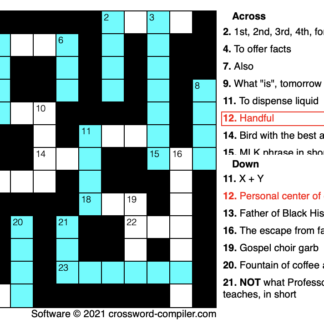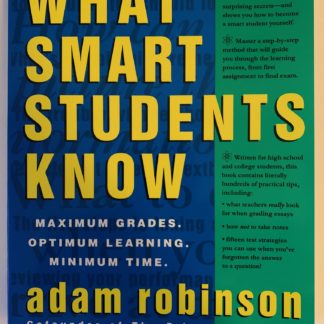Over the past couple of years, I’ve created puzzles like the one below for my day job’s magazine and for customers. When writing the clues, what becomes clear are the opportunities one has to set the context for both the clues and answers. In many cases, I deliberately use a cultural context for common words. That practice then gives way to the greater truth, that the context of our experience offers insight into the questions we face.
Category: Philosophy
These posts are intended to expand discussion about education topics. Potential tactics may be included, but they are not central.
Advocacy….after a few fundamental questions
When one mentions “parents’ advocacy” in November 2021, especially in the context of schools, one likely thinks of the raw conflict currently playing out between parents and school boards around the nation. Those confrontations are distractions. There are more fundamental questions to answer concerning the relationship between the education students of color receive and what their parents expect.
Continue reading Advocacy….after a few fundamental questions
Is Spelling Just About Letters?
Those small red squiggly lines that occasionally appear under my writing always present a choice.

Will I right-click on them and allow the computer to fix my words, or will I remember how they are spelled and re-write them myself? By habit I’ve been relying on memory as it seems that we lose cognitive ability little by little when we allow an artificial intelligence to replace our own. As it turns out, a lot has already been written by others exploring the same notion.
Reconciling History
Immiscibility describes the chemical inability of oil to combine with water.
This inability exists because while the individual oxygen and hydrogen molecules of water can bind themselves to each other infinitely, they do not connect with the hydrocarbon (hydrogen and carbon) molecules found in oil. Immiscibility also describes my prior unwillingness to accept the version of America described by certain high school historians and college political scientists. To defend a purist view of history, they would often offer the life and works of Thomas Jefferson. Ironically, Jefferson also has something to offer those seeking a more comprehensive historical view.
Learning to Make A Living
Envision a long wooden table in a Maryland home owner’s back yard covered with a long and clean sheet of brown paper.
Now imagine seeing small wooden mallets spaced about three feet apart where plates might go. Focusing in, you then see two identical containers of spice sitting the middle of the table. What kind of spice is it? What is about to happen? If you have spent even one summer in Maryland, you were likely able to conjure up in your mind two small shakers of Old Bay seasoning, that shall be sprinkled on the blue shell crabs about to hit the table. Your prior experience has prepared you to anticipate what would be appropriate given the setting you observed.
Historical Perspectives On Achievement, Part I

Defining achievement for students of color within the context of 2021 should be much different than it was for the free and enslaved students at the recently rediscovered Williamsburg Bray School in 1760.
Yet, the historic record of what was likely to be the first school in the nation founded to educate Black students is revelatory. That record opens a narrative showing how for more than 260 years and counting, ambitious Black families seeking excellence have had to settle for the educational equivalent of “hog maws”.
Continue reading Historical Perspectives On Achievement, Part I
2020 In Retrospect
So many have lost so much during 2020. At times, writing about academic achievement almost seems trite by comparison. Yet, students are still studying and still applying to school. Despite the travails of today, our collective future will still come, and our children need to be ready.
Momentum
We are the latter chapters of a book authored by our ancestors.
As such, the details that we’ve written find deeper meaning when we look back at what came before them. Where were our grandparents raised? What were their ambitions? Who were they and how did they define success? What if we are unwittingly living out their unfulfilled dreams? Knowing the answers to these questions might bring our image of achievement into focus.
The Invention of Intelligence, Part 2
(personal version)
Given two turntables, a sound mixer, and a stack of records from the eighties,
could you find two songs that are close enough in beats per minute and blend them together? What if I could demonstrate that the ability to synchronize two different records reflects the deeper intelligence required to reconcile one’s existence between two separate worlds? Below is a personal version of the previous post. It starts with the same opening paragraph as the academic one.
The Invention of Intelligence
(academic version)
Given two turntables, a sound mixer, and a stack of records from the eighties,
could you find two songs that are close enough in beats per minute and blend them together? What if I could demonstrate that the ability to synchronize two different records reflects the deeper intelligence required to reconcile one’s existence between two separate worlds?


